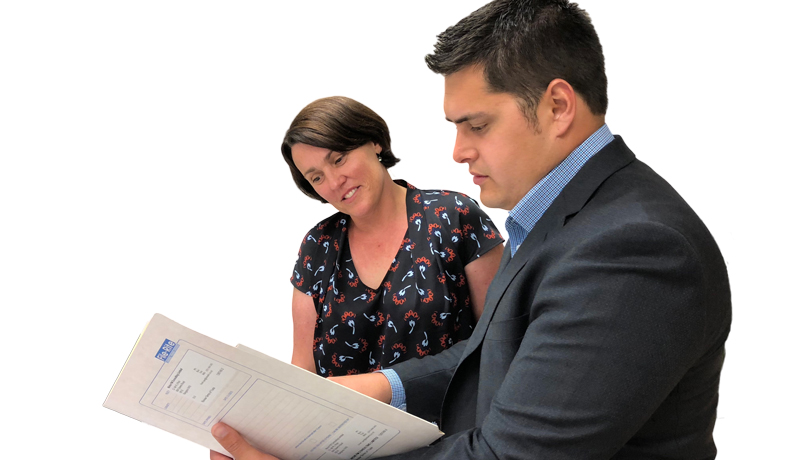Good governance just the ticket
Sharon Hunter is the new chair of technology company Eventfinda. Together with CEO and…
Sharon Hunter is the new chair of technology company Eventfinda. Together with CEO and co-founder James McGlinn the goal in 2018 is to further disrupt the ticketing industry, and they have the governance experience to achieve it.
If you’ve been associated with New Zealand’s technology industry for the past 20-plus years you’ll need no introduction to Sharon Hunter.
The co-founder of PC Direct is one of this country’s most well-known, respected and successful businesswomen – having sold the company to US Office Products in 1998 when she was 30 and subsequently holding directorships in a broad range of private and public companies, including not-for-profits such as Starship.
In November 2017, Hunter joined James McGlinn as the independent chair at Eventfinda – a business he co-founded with Michael Turner in 2006 with the goal of disrupting the ticketing industry and providing better outcomes for event organisers, promoters and consumers.
While Hunter may have the higher public profile, McGlinn has also chalked up a remarkable track record in business.
The idea for Eventfinda originally came from Turner, then frustrated by the lack of any single website covering nationwide events on the calendar.
The first milestone was getting APN (now NZME) on board in 2008. However, the GFC prompted a rethink of the business model, and in 2009 it pivoted to ticketing.
“We became the world’s only ticketing company with an events listing platform listing events for every other ticketing company in the country, and the 80 percent of events that aren’t ticketed,” explains McGlinn.
E-ticketing is ubiquitous. “The mobile ticketing trend has been phenomenal,” he says. “Today 75 percent of our web traffic is on mobile.”
Eventfinda now designs for the mobile platform first, then expands to other platforms. There are around 7000 listings
on the site at any one time – from school fairs to major
arena events.
In 2012 the platform was licensed into Australia, and Eventfinda now has 22 staff across four countries. The plan
for 2018 is to add more venues to the mix – here and across
the Tasman.
Both markets, McGlinn says, pose considerable challenges.
Eventfinda is up against large, well-funded international incumbents – but its advantage is its full-time design and development team, as well as its marketing expertise – which allows it to adapt quickly to client demands and customise websites to control the brand experience, gain valuable customer insights and deliver seamless ticketing.
“Often we become not just a ticketing partner, but an outsourced marketing department for our clients,” explains McGlinn. “We challenge them on ticketing strategy, as well as identifying their audience and the best way to get their message in front of them.”
The board walk
The Eventfinda board is central to the company’s push into Australia.
When APN bought into Eventfinda, overnight there was the requirement to run the business like a “grown-up listed company”. Forming a board seemed like adding a major overhead, recalls McGlinn. “But [Michael and I] quickly realised that the process and structure for the governance side of the business was pretty beneficial as well.
“Things like regular reporting, setting strategy, accountability, and meeting targets was incredibly useful. Without all that we wouldn’t have grown as quickly as we did.”
He says the different perspectives from board members helps identify ‘threats and opportunities’ and ask those difficult questions.
Sharon Hunter has held a variety of board positions post-PC Direct and is currently on seven. She says with the challenging complexity and fast-changing nature of today’s businesses, having a board – even just at advisory level – is a good thing.
McGlinn agrees. “You also have to understand why you need one. Certainly having an idea of where you’re going allows you to get a sense of where your skill gaps are.
“What are the skills and experience you need at the table?”
An advisory board can be valuable for bouncing ideas off, for providing contestability, getting that outside perspective, and sharing responsibility, adds Hunter.
There’s no one-size-fits-all either, she says. “You might start with just a mentor, which then grows into an advisory, and later becomes a fully-formed board.”
It’s imperative to get the mix right. To ensure you have a balance between having a board where people feel free to ask hard questions, or disagree and not feel obliged to go with the status quo or weight of opinion.
“A good chair is important too,” says Hunter. “One who ensures everyone gets a voice and can manage strong personalities; who can play devil’s advocate to stress-test an idea, strategy or budget.”
Members can be voted off a board, although if he or she is an investor it can be problematic.
“Investors aren’t always suited to the companies they’ve invested in,” explains Hunter. “That can be a problem around anything like risk appetite or appetite around pace, or choosing between investment growth and retaining earnings.”
Balancing act
With Hunter now on the previously all-male Eventfinda board, McGlinn believes the resulting tweak in attitude, approach and the range of possibilities that can be considered, have all made a big difference.
Greater diversity, whether it’s gender, ethnicity or age, improves behaviours, perspectives and the way intuition is applied, adds Hunter.
There are not enough young people on boards either, she believes. Which is major if your business wants to connect with a younger audience.
“You should, to some extent, mirror your customer base. Fit is really important.
“For example, if yours is an entrepreneurial company, do you have that entrepreneurial support and understanding at the table?”
When considering a board role, Hunter will see whether her skills match needs, and assess what skills are already around the table. Among other things, she considers personalities, entrepreneurial flair and how much skin the owner has in the business.
Other board roles, such as the Rugby World Cup, she takes on simply because they’re “astonishing opportunities”.
Looking back, PC Direct will always be the career standout for Hunter. That’s where she learnt the power of galvanising a team around a single idea. “PC Direct was the country’s first computer industry value chain disrupter,” she recalls, and that was long before the Internet turned logistics on its head.
For McGlinn there have been many lessons and highlights too – not least of which is “going up against well-resourced competitors in the ticketing space and proving that a small, passionate, committed team can achieve phenomenal results”.
This business sector is brutal – but Eventfinda is under sound governance.
As the saying goes – ‘no guts, no glory’.




